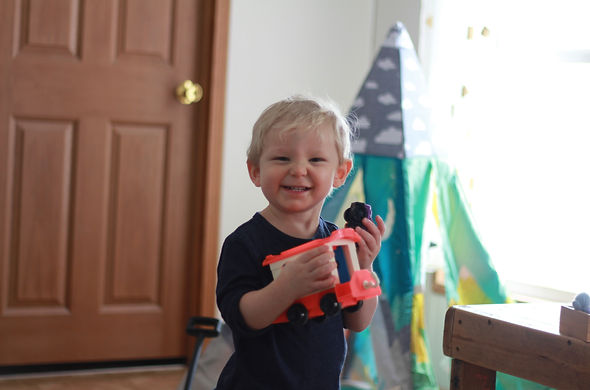top of page

Little Chickadees Nature Playschool
The Benefits of Play
At Little Chickadees I firmly believe in the power of play. Young children are naturally curious and want to learn everything there is to know about the world around them. This is their prime modality for learning.
I believe (and research supports) that when we give children a safe, rich, and engaging environment in which to learn, we keep that love for learning alive and encourage the development of countless skills that will later be essential for academic learning and for becoming a healthy, happy, well-balanced adult. Here are just a few of the benefits:
-
Problem solving and resilience - Children are faced with frustrating problems throughout their day- a puzzle piece won't fit or a block tower keeps falling over. Each time they push through and try again, they are learning that it's okay to fail, that they are capable, and that hard work often equals reward. Each time they think through a problem, they are using higher level thinking skills and the inquiry process.
-
Representational thinking - When a child pretends a block is a phone, that will later translate to the understanding that a written letter B can represent the spoken sound /B/. Playing pretend is an incredibly important precursor to reading.
-
Fine Motor Control - Playing with a variety of small toys and holding crayons & paintbrushes is the best way to develop the small muscle control needed to later hold a pencil.
-
Language Development - A variety of play materials offers endless opportunities for language development. Kids naturally talk about the names for their toys, the textures, the sizes, the actions they are carrying out, the colors and the shapes. They ask questions, they make up elaborate stories and plots, and they use position words (ie the dog is on top of the house; this man is in between the cars).
-
Social Skills - With support from adults, children will learn positive social skills that will be useful all the way through adulthood and in the workplace. They develop leadership skills as they direct complicated plots in the play kitchen, they learn to compromise when a friend disagrees on the rules in a game, they learn patience as they wait for a turn, they practice communicating, work to solve conflicts, and cooperate to meet shared goals.
I do not do letter of the week, calendar, or worksheets here. Research has shown that these types of disconnected teaching are not effective with young children, and can create a negative view of reading and learning. Research also shows that pushing children to read early offers no long term benefits over waiting until they are ready (often not until age 6 or 7).
We Have Kids has a great article on this called 5 Preschool Activities That Parents Should Know Are a Waste of Time that is worth a read.
I do make time for activities that have been proven to improve learning outcomes. Every day we have a joyful story and song time, lots of art and messy play where we get to explore a variety of materials and sensory experiences, and on Thursdays we do authentic nature crafting, which may include making a bird house, pressing flowers, or tapping maple syrup together.

bottom of page